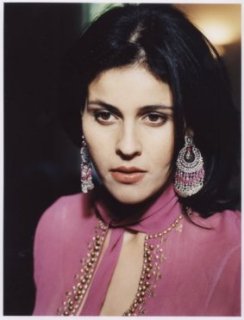Tell, storyteller,
tell a story! May it be a legend!
tell us of the people of yesterday;
Of Loundja, the daughter of the Ogress and the son of the sultan.
start with once upon a time,
offer us dreams
Start with Once upon a time
We all have a story in the depths of our heart.
narrate and forget we're adults
In your mind we're young
tell us about heaven and hell
about the bird that never flew in his life
make us understand the meaning of the world
oh storyteller tell it just as they told you
don't add anything, don't leave anything out
We could see into your mind
narrate to make us forget this time
leave us at once upon a time.
tell a story! May it be a legend!
tell us of the people of yesterday;
Of Loundja, the daughter of the Ogress and the son of the sultan.
start with once upon a time,
offer us dreams
Start with Once upon a time
We all have a story in the depths of our heart.
narrate and forget we're adults
In your mind we're young
tell us about heaven and hell
about the bird that never flew in his life
make us understand the meaning of the world
oh storyteller tell it just as they told you
don't add anything, don't leave anything out
We could see into your mind
narrate to make us forget this time
leave us at once upon a time.
_________________________________________________________
Souad Massi :
| Souad Massi | |||
|---|---|---|---|
 Souad Massi in concert in Jarash, Jordan 25 June 2007 Photo: Merkur Beqiri | |||
| Background information | |||
| Born | August 23, 1972 Algiers, Algeria | ||
| Genres | Rock, Country, Fado, Algerian folk music, World music | ||
| Occupations | Musician, Songwriter | ||
| Instruments | Vocals, Guitar, Oud | ||
| Years active | 1989–present | ||
| Labels | Island | ||
Souad Massi, born August 23, 1972, is an Algerian singer, songwriter and guitarist. She began her career performing in the Kabyle political rock band Atakor, before leaving the country following a series of death threats. In 1999, Massi performed at the Femmes d'Algerie concert in Paris, which led to a recording contract with Island Records.
Massi's music, which prominently features the acoustic guitar, displays Western musical style influences such as rock, country or the Portuguese fado but sometimes incorporates oriental musical influences and oriental instruments like the oud as well as African musical stylings. Massi sings in Algerian Arabic, French, and occasionally English and Kabyle (Berber language), often employing multiple languages in the same song.
Childhood and early bands
Massi was born in Algiers, Algeria to a poor family of seven children.[1] Encouraged by her older brother, she began studying music at a young age, singing and playing guitar.[1] Growing up, she immersed herself in American country and roots music – musical styles that would later strongly influence her songwriting.[2] At the age of seventeen, she joined a flamenco band, but quickly grew bored with the group and left.In the early 1990s, Massi joined the Algerian political rock band Atakor, who were influenced by Western rock bands such as Led Zeppelin and U2. She recorded and performed with the group for seven years, releasing a successful album and two popular music videos.[3] The band, however, with its political lyrics and growing popularity became a target. Massi disguised herself by cutting her hair and dressing in male clothing, but she nevertheless became the target of a series of death threats.[1] In 1999, she left the band and moved to Paris, France.
Solo career
In 1999, Massi was invited to perform at the Femmes d'Algerie ("Women from Algeria") festival in Paris, which led to a recording contract with Island Records.[4] In June 2001, she released her solo debut album, Raoui ("Storyteller"), which Allmusic compared to 1960s American folk music.[5] Sung mostly in French and Arabic, the album became a critical and commercial success in France.[3] The following year, she was nominated for "Best Newcomer" at the Radio 3 World Music Awards.[6]In 2003, she released her second album, Deb ("Heartbroken"). The album's lyrics were more personal, rather than political, and it became one of the most successful North African albums worldwide.[7] Three years later, Massi released her third album, Mesk Elil ("Honeysuckle"). The album expanded on the themes of love and loss that had been explored on Deb, and featured duets with Daby Toure and Rabah Khalfa.
In 2010, she released her fourth studio album Ô Houria. This album was produced by Francis Cabrel and Francoise Michel. It features Paul Weller on piano and vocals on its closing song.


EmoticonEmoticon